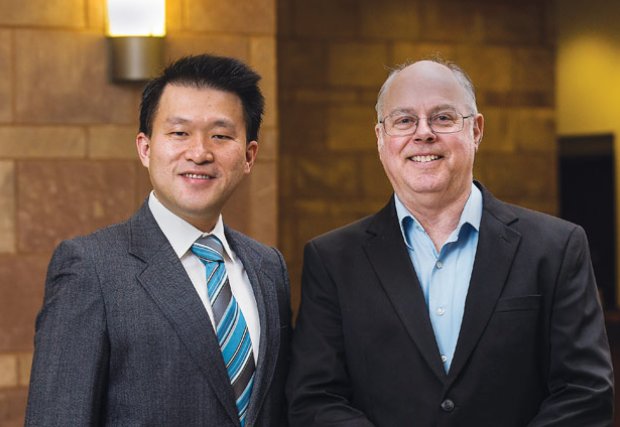Colorectal Surgeon Roger Hsiung, MD, and David Gardner
David was diagnosed with rectal cancer last June, three days after retiring from his career as a science teacher. “I was blindsided,” he recalls of getting the diagnosis. When he met with Board-certified Colorectal Surgeon Roger Hsiung, MD, he was encouraged to learn that he was a candidate for minimally invasive robotic-assisted surgery.
In the past, treatment for rectal cancer often required removing cancerous parts of the anatomy and leaving the patient with a permanent colostomy bag. Robotic-assisted surgery can precisely target the cancer and allow many patients, like David, to maintain normal bowel function, explains Dr. Hsiung,who specializes in advanced surgical and minimally invasive robotic techniques.
During a robotic colorectal procedure, the surgeon sits at a console about 5 to 10 feet away from the patient. “Tiny instruments that simulate a human wrist and high-definition 3D cameras access remote surgical sites where human eyes can’t see and human hands can’t reach,” Dr. Hsiung explains. Greater precision means less impact on surrounding areas of the body, which results in less pain. “I was amazed at how fast the recovery was,” David says. “There was no pain. It didn’t hurt.”
Along with surgery at Summerlin Hospital, David’s treatment included radiation, chemotherapy and a temporary ostomy bag to give his body time to heal. The last step is to remove the bag and return his normal bowel function. “Then I’ll be good as new,” he says.
If you need to find a doctor for colorectal cancer screening or would like to schedule an appointment to discuss treatment, please call our free physician referral service at 702-388-4888.

